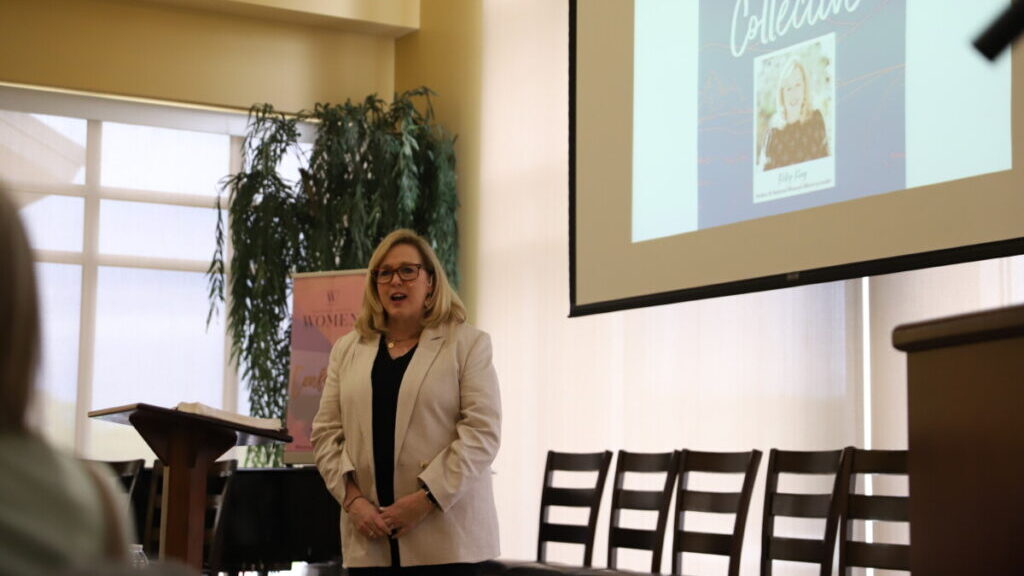The Corvette plant and museum in Bowling Green, Kentucky, is a beautiful, state-of-the-art facility, and tours are a great family outing, noted Ken Braddy.
“You can even pay around $75,000 and pick your car from the assembly line to drive home!” said the Sunday School director for Lifeway Christian Resources. “But as wonderful as this facility is, they’ve never manufactured a Camaro. The only thing they make is Corvettes.
“In the same way the Lord gives people to His ‘factory’ the church and expects us to produce only one product: disciples who love and serve Christ.”
Braddy conducted a webinar Jan. 13 entitled, “Five Principles For Making Disciples,” and suggested Jim Putman had it right in his book, “DiscipleShift.”
“Putman said, ‘follow me’ means a mental decision to submit to Jesus as boss,” Braddy explained. “‘I will make you’ implies the transformative power of God’s Holy Spirit who works in our lives, and ‘fishers of men’ means we love and reach out to a hurting and dying world.”
Proximity
Braddy noted the first principle in the discipleship process is proximity.
“Jesus taught 5,000 people one time from a mountainside, but this wasn’t His typical way to teach,” Braddy said. “He typically walked with His disciples and taught them about God. You don’t make disciples from a distance.”
Braddy cited 2 Timothy 2 in which Paul exhorts Timothy to pass along the truths he had been taught.
“Relationships are the method,” Braddy asserted. “Carey Nieuwhof said, ‘Community is more important than content.’ I work at Lifeway with content, and I know that’s important, but relationships are even more important.”
Groups
The second principle is that disciples are made in groups, Braddy said, referring to a poll conducted by Southwestern Baptist Theological Seminary in 2019 in which one of the statements was, “I can walk with God without other believers.” Some two-thirds of respondents either strongly agreed or somewhat agreed.
“However, our research at Lifeway for the book, ‘Transformational Groups,’ found that those involved in groups are more committed to Christ,” Braddy noted.
“They use their gifts in service more, they pray more and they give more money to their churches. That’s why we say we must move people from ‘rows to circles.’ Preaching has its place, but the small group affords appropriate teaching for various age groups and meaningful discussion.”
Braddy cited former Lifeway CEO Thom Rainer’s research that found group Bible study participation is a key factor in “staying power.” Eighty-three people out of 100 remain in their churches for five years if they’re involved in worship and Bible study, whereas only 16 remain who attend worship only.
Time
Braddy’s third principle is that disciples are made over time.
“The tortoise and hare fable taught us ‘slow and steady wins the race,’” Braddy said. “Discipleship isn’t a quick process.”
He suggested “shepherd/teacher” personality types realize this and appreciate incremental change, whereas “prophet/exhorter” personality types often seek immediate change that may not come about in the discipleship process.
Daily Bible reading
A fourth principle is that growing disciples read the Bible daily, Braddy said, noting Brad Waggoner’s “The Shape of Faith To Come,” in which the author suggests three predictors or indicators of growth over a two-year period.
“Waggoner found worship attendance and small group Bible study significant, to be sure, but the number one indicator is that growing disciples read the Bible and other Christian literature daily,” Braddy said.
He noted that Lifeway designed the “Daily Discipleship Guide” about five years ago based on Waggoner’s research (available in Bible Studies for Life, Explore the Bible and The Gospel Project curriculum).
“The genius of this tool is that there is lesson content for Sunday morning Bible study and then readings for the next five days to encourage learners to continue to read, meditate and be accountable based on the lesson theme,” Braddy said. “Lifeway provides free samples of this guide on our website so that churches can consider it for their use.”
8 signposts
Principle five says discipleship is shown in eight key ways — “signposts” that demonstrate disciples are growing:
- We obey God and deny self.
- We engage with Scripture.
- We share Christ.
- We exercise our faith.
- We seek God.
- We build relationships.
- We live unashamed of the gospel.
- We serve God and others.
Braddy said he plans 10 webinars this year for church and group leaders through a program he calls “Training Through ’22.” The second will be Feb. 10: “Follow Up With First-Time Guests.” Participants may register at lifeway.com/training22.
Braddy also publishes articles about Sunday school and other group Bible studies at kenbraddy.com.








